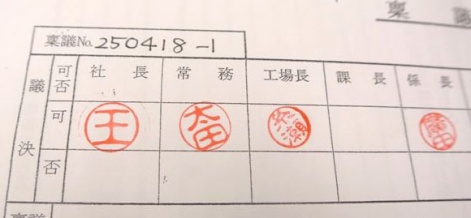David McCarthy has been employed by Metaps, GREE, Rockstar Games and Edge magazine.
He currently works for Japanese developer Cybird Inc, and writes regularly about the differences and similarities between the Japanese and western mobile game markets.
In previous columns I have tried to highlight some of the major problems that developers might encounter when trying to crack the Japanese market.
In this column I would like to look at some of the minor ones.
Because when you’re trying to work with partners from another part of the world it is all too easy to overlook problems that start out looking pretty small and inconsequential.
But in my experience these small problems have a nasty habit of growing and sending out large ripples. Left unchecked they can be overwhelming and seriously disrupt your plans for overseas expansion.
Unknown unknowns
Sometimes the problem is just that companies don’t realise that there will actually be a problem.
As someone else with international expansion on their mind memorably put it: there are a lot of unknown unknowns.
In my experience, small problems have a nasty habit of growing and sending out large ripples.David McCarthy
Other times, the problem is that the problems seem so small and easy to solve that they nobody makes any serious effort to solve them until it is too late.
And still other times, the problem is that some sort of cognitive dissonance prevents people from getting their head around a problem even as it bites them in the ass.
Lawyers rule
One thing that has a particularly nasty bite is the law. Japanese legal departments seem to delight in finding new ways to confuse and perplex western developers.
If you are about to embark on a joint endeavour with a Japanese parter, be prepared for a simple NDA to take a week, or even a month, to get signed (and if you don’t think you need an NDA at all, be prepared to think again).
I have even encountered a legal team who refused to sign an NDA with a US developer because the margins weren’t aligned as they liked them.
An obvious thing to bear in mind is that the law is different in other countries.
That much, I think every developer is prepared for. What they might not be prepared for is the myriad different ways in which this might be so.
Japanese developers, for example, are used to dealing with a single market, with a single set of privacy laws, so the recent changes to EU privacy laws are a nightmarish morass of unforeseen consequences.
Going the other way, western developers might need to be aware that, for example, refunds for in-app purchases are enshrined in Japanese law and not just good practice.
Group decision
Another fundamental difference is the way in which contracts are viewed.
In the US, for example, you might draft a contract with a reasonable expectation that it will be tested in a court of law if/when things go wrong. In Japan they are more likely to be viewed as a loose set of guidelines for mediation if/when things go wrong.

Which could mean you encounter a Japanese legal team that is a bit of a pushover because they are more relaxed about the consequences; but you could also encounter a Japanese legal team that refuses to compromise for fear of the consequences.
Many of the difficulties that western developers face when dealing with Japanese legal teams stem from the ‘ringi’ system, which can turn the simplest of processes into a time sink of sisyphean proportions.
Under this system any official decisions have to be ratified by a series of managers who actually have to put a physical stamp on a piece of paper (or at least click a button on a dashboard).
A senior manager can’t approve something until the relevant junior managers have all signed off.David McCarthy
Crucially, this has to be done in order of seniority, so a senior manager can’t approve something until the relevant junior managers have all signed off, and often any payments or paperwork have to be signed off twice: once in advance, and then once when it comes to actually paying or signing something.
Group think
Depending on the nature of the decision, and the company, and the individual manager, any one of these stages could take a deal-breakingly long time; or it could just whizz by with the click of an ‘I approve’ button.
For example, in Europe, if you want to take a client out for a drink, you can probably just whip out your company credit card and get a round in, and justify it to your boss or your accounts department at a later date.
In Japan you (or your host) might have to send a request in advace, via ringi, listing the location, the attendees, the cost, and the purpose of the meeting; and then apply after the event to get that money back in cash.
Which makes it rather more difficult to set up a last-minute snifter to see off the end of an expo or whatever.
It might also make it tiresome for, say a Japanese programmer to get the afternoon off work to go to a networking party.
Rather than trying to justify their attendance by forecasting the number of business cards they expect to collect or whatever, they might just decide it is easier to stay at their desk - something to note if you are planning on throwing such a party.
Real unknowns
And the ringi system also makes a pronounced mark on accounting and invoicing, which is another area that is ripe with molehills just waiting to turn into mountains.
Mostly these are to do with the amount of additional paperwork that Japanese customers might request to get their internal sign-off; but any delays are compounded by other minor accounting differences like standard payment terms and so on.
But maybe one of the worst ways in which minor problems can turn into major ones is with the unknown unknowns that people think they know, but they don’t actually.
Like, for example, a head office that thinks that if their local office just works a bit harder and applies the strategies and tactics that worked for head office, they would be much more successful.
The refusal to acknowledge that foreign markets can be, well, different, and the refusal to admit that a different approach might be needed can be fatal.
I’m not sure I know a good way of dealing with these sorts of unknown unknowns, or even known unknowns, except for knowingly building in a ton of contingencies to any plans you have, and always assuming that something can go wrong in unexpected ways.
That way, you will be fine. Possibly.
But if you want more advice about known or unknown knowns or unknowns, feel free to get in touch!

















